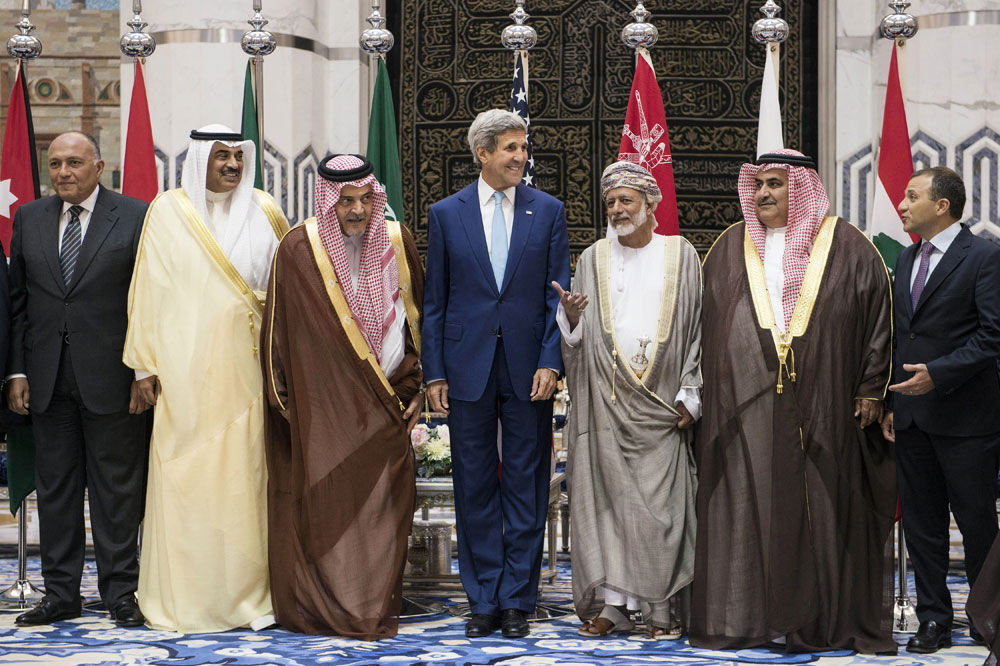Advertisement
Building A Middle East Coalition To Tackle ISIS
ResumePresident Obama says he will build a coalition of partners in the Middle East to combat ISIS. We’ll do a reality check on who’s really stepping up for what.

They’re meeting in Paris today. Leaders and diplomats from more than 30 nations, on how to take down ISIS, the so-called Islamic State that has overrun parts of Syria and Iraq. Front and center is US Secretary of State John Kerry, looking to harness the coalition that President Obama says will work with the US to take it down. But who will bring what, exactly, to the effort? There is capacity and lots of strong rhetoric. There are also conflicting agendas and hesitation. This hour, On Point: A reality check on the anti-ISIS coalition. Who’s really ready to do what, and whether it all adds up.
- Tom Ashbrook
Guests
Michelle Dunne, senior associate at the Middle East Program, Carnegie Endowment for International Peace. Former Middle East specialist at the U.S. Department of State from 1986 to 2003. (@MicheleDDunne)
David Ignatius, columnist for the Washington Post covering the Middle East. His new novel is "The Director." (@IgnatiusPost)
Roula Khalaf, foreign editor for the Financial Times. (@khalafroula)
From Tom's Reading List
The Washington Post: The ‘slows’ of Obama’s Islamic State strategy - "Phase two of the administration’s strategy is gathering allies in the region to encourage Sunni Muslims in Iraq and Syria to fight the Islamic State. The three key partners so far have been Saudi Arabia, Jordan and the United Arab Emirates. Each has hosted meetings with Iraqi tribal leaders in recent weeks. 'We reached out to the Iraqis and said, "We’re prepared to open a new chapter with you,’"' explains one key Gulf Arab official."
The New York Times: Arabs Give Tepid Support to U.S. Fight Against ISIS - "Many Arab governments grumbled quietly in 2011 as the United States left Iraq, fearful it might fall deeper into chaos or Iranian influence. Now, the United States is back and getting a less than enthusiastic welcome, with leading allies like Egypt, Jordan and Turkey all finding ways on Thursday to avoid specific commitments to President Obama’s expanded military campaign against Sunni extremists."
The Daily Beast: Why Turkey Is Sitting Out the ISIS War - "A diplomatic crisis looms. Turkey, a key U.S. ally and the only NATO member that borders areas controlled by ISIS jihadists in Syria and Iraq, is in a prime location to hit the extremists next door. But it prefers not to."
This program aired on September 15, 2014.